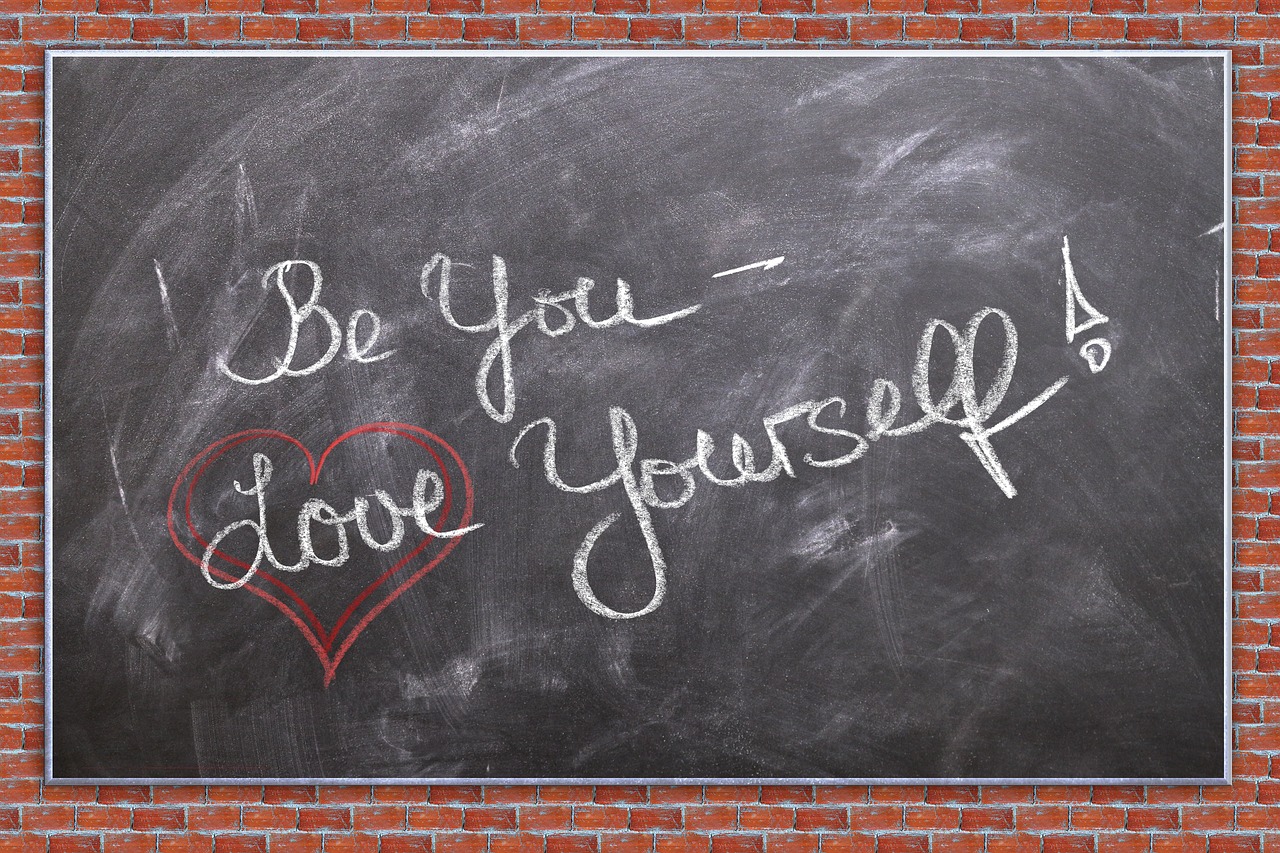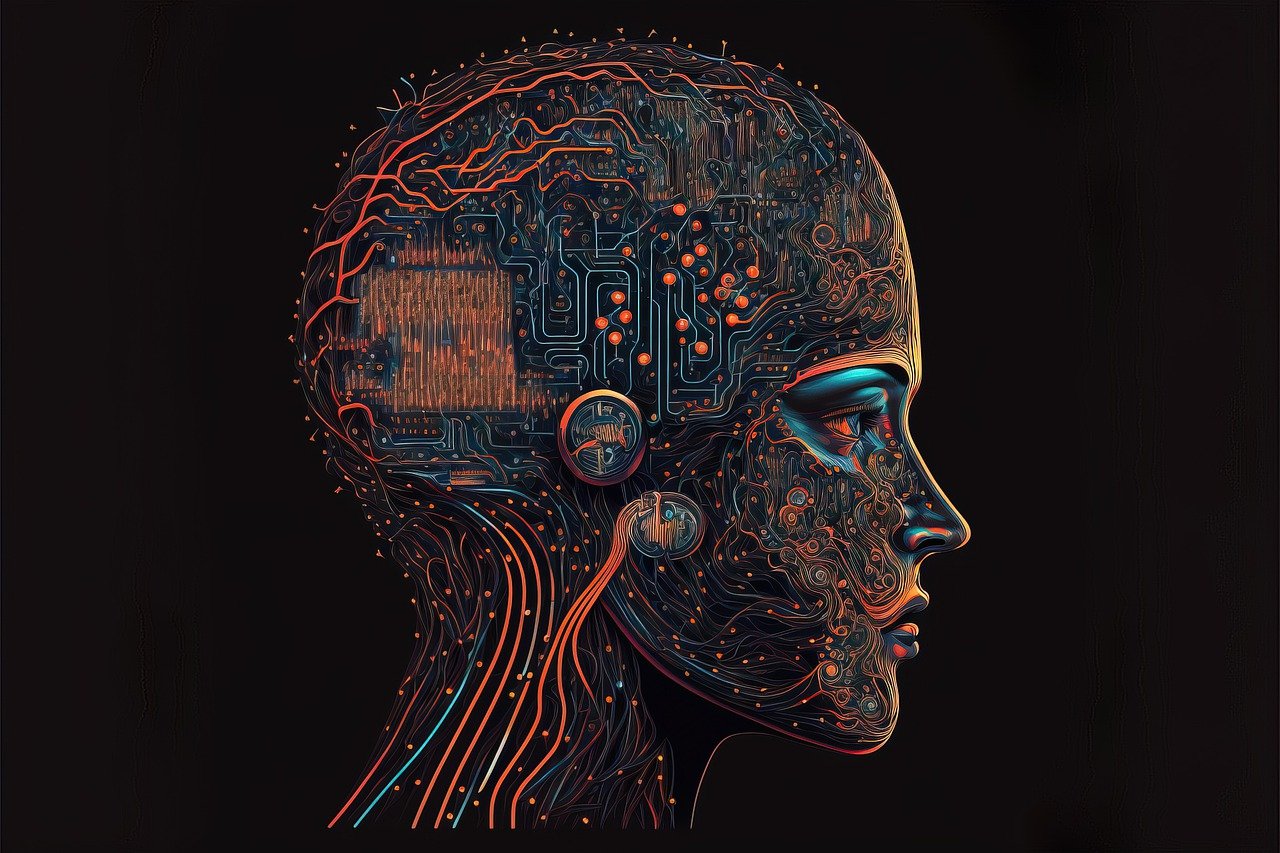The Role of Consciousness in Emotional Responses
Have you ever paused to think about how your feelings shape your actions? It’s fascinating to realize that our consciousness—that inner voice that narrates our experiences—plays a pivotal role in how we perceive and react to emotions. This article dives deep into the intricate relationship between consciousness and emotional responses, highlighting how our awareness not only shapes our feelings but also influences our behavior and impacts our mental health.
Understanding consciousness is fundamental to exploring its role in emotions. Consciousness can be defined as the state of being aware of and able to think about one's own existence, thoughts, and surroundings. Various theories exist, from the philosophical musings of Descartes to modern psychological perspectives. It encompasses different states, including wakefulness, altered states, and even unconsciousness, each affecting our emotional experiences in unique ways. For instance, when we’re in a heightened state of awareness, we can better recognize our emotions, leading to more thoughtful responses rather than knee-jerk reactions.
So, how does conscious awareness influence our emotional states? Think of it this way: emotions are like the weather, and consciousness is the lens through which we view it. When we consciously reflect on our feelings, we can often identify the underlying thoughts that trigger them. This interplay between thought processes and feelings is crucial; it’s like having a map that guides us through the emotional landscape. For example, if you feel anxious before a presentation, recognizing that this anxiety stems from fear of judgment can empower you to address it constructively.
While consciousness plays a key role, we can’t ignore the impact of unconscious factors on our emotional responses. Sometimes, hidden thoughts and feelings bubble up to the surface, influencing our emotional experiences without us even realizing it. These unconscious influences can be likened to an iceberg, where the visible part represents our conscious awareness, while the larger, submerged portion symbolizes our hidden emotions and unresolved conflicts. Acknowledging these hidden aspects can lead to profound insights and emotional healing.
Memory significantly impacts our emotional responses. Our past experiences, both positive and negative, shape our current emotional states and reactions. For instance, if you had a traumatic experience at a certain location, just the thought of returning there might trigger anxiety. Our memories act as a filter through which we interpret new experiences, often coloring them with the hues of our past. This emotional memory can create a rich tapestry of feelings, influencing how we respond to similar situations in the future.
Cognitive dissonance can create emotional conflict, leading to stress and anxiety. When our beliefs clash with our emotions, it’s like trying to walk in two different directions at once—exhausting and confusing! For example, if you believe in being environmentally friendly but find yourself using plastic bags out of convenience, the resulting dissonance can create feelings of guilt and frustration. Awareness of these conflicts is the first step toward resolving them, allowing us to align our beliefs and actions more harmoniously.
Mindfulness practices enhance emotional regulation by promoting awareness of our feelings. Techniques such as meditation and deep breathing allow us to step back and observe our emotions without judgment. It’s like having a front-row seat to our emotional theater, where we can watch the drama unfold without getting swept away. By fostering mindfulness, we can develop a healthier relationship with our emotions, enabling us to respond rather than react impulsively. This practice not only improves our emotional well-being but also enhances our overall quality of life.
Emotional awareness is crucial for personal development. Recognizing and understanding our emotions can lead to healthier relationships and improved mental health. When we are aware of our feelings, we can communicate them effectively, reducing misunderstandings and fostering deeper connections with others. It’s like shining a light in a dark room; once you illuminate your emotions, you can navigate your interactions with clarity and compassion.
Emotional intelligence involves recognizing and managing emotions, and consciousness plays a significant role in developing this intelligence. By being aware of our emotional responses, we can learn to regulate them, enhancing our interactions with others. This awareness not only helps us understand ourselves better but also allows us to empathize with those around us, creating a ripple effect of emotional understanding in our relationships.
Stress significantly impacts both consciousness and emotional responses. When we experience stress, our awareness can narrow, making it harder to recognize and process our emotions. It’s like trying to see through a foggy window; everything becomes distorted and unclear. This altered state can lead to emotional dysregulation, where our feelings become overwhelming or unmanageable. However, by implementing stress-reduction strategies such as exercise, mindfulness, and adequate rest, we can clear that fog, allowing for a more balanced emotional experience.
- What is the relationship between consciousness and emotions? Consciousness shapes how we perceive and respond to our emotions, influencing our thoughts and behaviors.
- How do unconscious factors affect emotional responses? Unconscious factors can manifest as hidden feelings that influence our emotional experiences without our awareness.
- What role does mindfulness play in emotional regulation? Mindfulness promotes awareness of our feelings, helping us respond thoughtfully rather than react impulsively.
- How can emotional awareness improve relationships? Recognizing and understanding our emotions allows for better communication and deeper connections with others.

The Nature of Consciousness
Understanding consciousness is fundamental to exploring its role in emotions. At its core, consciousness refers to the state of being aware of and able to think about one's own existence, thoughts, and surroundings. It's like shining a spotlight on our mental landscape, illuminating thoughts and feelings that might otherwise remain in the shadows. But what exactly does it mean to be conscious? Various definitions and theories have emerged over the years, each attempting to capture the essence of this complex phenomenon.
Philosophers and scientists alike have grappled with the concept of consciousness. Some argue that it is a product of brain activity, while others suggest it transcends mere biological functions. Theories like dualism, which posits that the mind and body are separate, and physicalism, which asserts that everything about consciousness can be explained through physical processes, provide different lenses through which to view this intricate subject. Imagine consciousness as a vast ocean, with each wave representing thoughts and feelings that ebb and flow, influenced by deeper currents of experience and perception.
Moreover, consciousness is not a monolithic state; it exists on a spectrum. We experience different states of consciousness throughout our lives, ranging from full wakefulness to deep sleep, and even altered states induced by meditation, drugs, or intense emotions. Each state affects our emotional experiences in unique ways. For instance, during moments of heightened awareness, we may feel more in tune with our emotions, allowing us to respond thoughtfully rather than react impulsively. Conversely, in a distracted state, we might overlook subtle feelings, leading to misunderstandings in our emotional responses.
To illustrate the various states of consciousness, consider the following table:
| State of Consciousness | Description | Emotional Impact |
|---|---|---|
| Waking | Full awareness of surroundings and self | Enhanced emotional clarity and responsiveness |
| Sleep | State of rest with reduced awareness | Emotional processing and memory consolidation |
| Meditative | Focused awareness, often on the present moment | Increased emotional regulation and calmness |
| Altered (e.g., drug-induced) | Changed state of awareness, can be unpredictable | Potentially heightened or distorted emotional experiences |
In summary, the nature of consciousness is multifaceted and deeply intertwined with our emotional experiences. By understanding the different states of consciousness and how they shape our feelings, we can begin to appreciate the profound impact that awareness has on our emotional lives. This exploration sets the stage for delving deeper into the connection between consciousness and emotions, revealing the intricate dance between our thoughts and feelings.

When we think about our emotions, it’s easy to overlook the role that consciousness plays in shaping them. Imagine consciousness as a spotlight in a dark room; it illuminates certain thoughts and feelings while leaving others in the shadows. This spotlight effect not only helps us become aware of our emotions but also influences how we react to them. Have you ever found yourself in a situation where your feelings seemed to come out of nowhere? That’s often because unconscious thoughts and beliefs were at play, lurking just outside of our immediate awareness.
Research shows that our conscious awareness can dramatically alter our emotional responses. For instance, when we consciously identify a feeling—like sadness or anger—we can start to process it. This recognition is the first step toward understanding why we feel that way. It’s like pulling a thread on a sweater; once you start unraveling it, you might discover a whole tapestry of emotions and experiences beneath the surface. Our thoughts, influenced by our conscious state, can either amplify or diminish our emotions. Positive thinking, for example, can help us manage stress and anxiety, while negative thoughts can exacerbate feelings of sadness or anger.
Furthermore, the interplay between consciousness and emotions is not just a one-way street. Emotions can also affect our conscious awareness. Think about a time when you were overwhelmed with joy or sadness; it likely colored your perception of reality. You may have found it hard to focus on anything else, as if your entire world was filtered through that emotional lens. This reciprocal relationship means that being aware of our emotions can help us navigate through life more effectively. It’s like having a map in unfamiliar territory; the more we know about our emotional landscape, the better equipped we are to handle what comes our way.
Additionally, understanding this connection can lead to improved emotional regulation. When we become conscious of our feelings, we gain the ability to choose how to respond. Instead of reacting impulsively, we can pause, reflect, and decide on a course of action that aligns with our values and goals. This is particularly important in high-stress situations where our emotions might otherwise take the reins. By fostering a deeper awareness of our emotional states, we can learn to respond rather than react, leading to healthier interactions and improved mental health.
In conclusion, the connection between consciousness and emotions is intricate and profound. By shining a light on our feelings, we can better understand them, manage them, and ultimately enhance our emotional well-being. So, the next time you find yourself feeling a certain way, take a moment to explore what’s behind that emotion. What thoughts are running through your mind? What beliefs might be influencing your feelings? This conscious exploration could be the key to unlocking a deeper understanding of yourself.
- How does consciousness influence emotional responses? Consciousness allows us to recognize and process our emotions, leading to more informed responses rather than impulsive reactions.
- Can emotions affect consciousness? Yes, emotions can shape our conscious awareness, often filtering our perception of reality based on how we feel.
- What role does emotional awareness play in mental health? Being aware of our emotions helps us manage them better, leading to healthier relationships and improved mental health.

When we think about our emotions, we often focus on what we consciously feel and express. However, there’s a whole world beneath the surface that significantly influences our emotional landscape—our unconscious mind. Imagine your unconscious as a vast ocean, while your conscious thoughts are merely the waves that break upon the shore. Just as the ocean's currents shape the waves, our unconscious thoughts and feelings shape our emotional responses, often without us even realizing it.
Unconscious influences can stem from a variety of sources, including past experiences, societal conditioning, and even biological factors. For instance, have you ever found yourself feeling anxious in a situation that seems harmless? This reaction could be rooted in a past experience that you might not even remember consciously. Our brains are fantastic at storing memories, but sometimes they do so without our awareness. This can create emotional responses that feel automatic and unexplainable.
Moreover, the unconscious mind often processes emotions in ways that can lead to surprising outcomes. Consider the concept of repressed emotions. These are feelings that we’ve buried deep within us, perhaps due to their intensity or because they conflict with our conscious beliefs. When these emotions are triggered—say, by a familiar smell or a certain song—they can surface in unexpected ways, leading to feelings of sadness, anger, or joy that seem to come out of nowhere. It’s almost like a hidden reservoir of feelings waiting to be tapped into, often leading to emotional responses we struggle to understand.
Another fascinating aspect is the role of implicit biases. These are unconscious attitudes or stereotypes that affect our understanding, actions, and decisions. They can shape our emotional responses towards others based on their race, gender, or appearance, even if we consciously believe in equality and fairness. This dissonance between conscious beliefs and unconscious biases can create a complex emotional cocktail that influences how we interact with the world around us.
So, how can we become more aware of these unconscious influences? One effective method is through self-reflection and mindfulness practices. By taking time to explore our feelings and reactions, we can begin to uncover the hidden currents that drive our emotional responses. Keeping a journal can also be a powerful tool; it allows us to track patterns in our emotions and thoughts, shining a light on the unconscious influences at play.
In summary, while we often focus on the conscious aspects of our emotional experiences, it’s crucial to recognize the significant role that the unconscious mind plays. By understanding these hidden influences, we can work towards a more comprehensive understanding of our emotional health and well-being.
- What are unconscious influences on emotions? Unconscious influences are feelings and reactions that stem from past experiences, societal conditioning, or repressed emotions that we are not actively aware of.
- How can I become more aware of my unconscious emotions? Techniques such as mindfulness, self-reflection, and journaling can help you uncover and understand the unconscious influences on your emotional responses.
- Can unconscious biases affect my relationships? Yes, unconscious biases can shape how we perceive and interact with others, potentially leading to misunderstandings or conflicts in relationships.

Memory plays a crucial role in shaping our emotional responses. Imagine walking into a room filled with the scent of freshly baked cookies. Instantly, you might feel a wave of nostalgia, recalling the warmth of your grandmother's kitchen. This is a perfect example of how our memories can trigger powerful emotions. Memories are not just static recordings; they are dynamic experiences that can influence our feelings in profound ways. When we encounter situations similar to those we've experienced before, our brain retrieves relevant memories, which can evoke corresponding emotional reactions.
Research indicates that emotions are often tied to specific memories, forming a complex web of associations. For instance, a particular song might remind you of a significant moment in your life, like your first dance at prom. This association can bring back feelings of joy, excitement, or even sadness, depending on the context of that memory. The emotional weight of these memories can be so strong that they can affect our current mood and behavior. Thus, understanding the relationship between memory and emotion can be key to navigating our emotional landscape.
Furthermore, the way we remember events can also alter our emotional responses. Our brains tend to reconstruct memories based on our current feelings and beliefs. This phenomenon can lead to a bias in how we perceive past experiences. For example, if you are feeling particularly anxious, you might recall a past event as more negative than it truly was. Conversely, positive emotions can lead to an overly rosy recollection of events, making them seem better than they were. This interplay between memory and emotion highlights the importance of being aware of how our current state can color our recollections.
Additionally, memories can serve as triggers for emotional responses in various contexts. For instance, someone who has experienced trauma may find that certain sounds, smells, or places can evoke feelings of fear or anxiety, even if they are safe in the present moment. This is often referred to as a memory-triggered emotional response, where the individual is not consciously aware of the memory that is causing the reaction. Understanding this connection can be vital for mental health, as it can lead to the development of coping strategies that help manage these involuntary emotional responses.
In summary, memory is not just a passive repository of past experiences; it actively shapes our emotional responses and influences how we interact with the world. By recognizing the significant role that memory plays in our emotional lives, we can begin to understand our feelings more deeply and work towards healthier emotional regulation.
- How do memories affect our emotions? Memories can trigger emotional responses based on past experiences, influencing how we feel in similar situations.
- Can our current emotions alter our memories? Yes, our current emotional state can bias the way we recall past events, often coloring them in a more positive or negative light.
- What is a memory-triggered emotional response? It's an involuntary emotional reaction caused by a memory that is not consciously recalled, often linked to past trauma.
- How can we manage emotional responses linked to memories? Techniques such as mindfulness and cognitive behavioral therapy can help individuals process and cope with emotional responses tied to memories.

Cognitive dissonance is a fascinating psychological phenomenon that occurs when a person experiences a clash between their beliefs, thoughts, or attitudes and their behaviors. This internal conflict can lead to significant emotional turmoil. Imagine you're a devoted animal lover, yet you find yourself eating a steak for dinner. The discomfort arising from this contradiction is cognitive dissonance at play. It’s like having two opposing forces pulling at your emotional strings, creating a sense of unease that can manifest as stress, anxiety, or even guilt.
When we face cognitive dissonance, our minds instinctively seek harmony. We want to feel consistent in our beliefs and actions, much like a well-tuned orchestra. However, when dissonance strikes, it can feel like a discordant note that disrupts the entire symphony of our emotional state. This emotional conflict can lead to a range of responses; some may rationalize their behavior to alleviate discomfort, while others might change their beliefs to align with their actions. For instance, someone who loves animals might justify their meat consumption by downplaying the intelligence of farm animals, thus easing their guilt.
Understanding how cognitive dissonance influences our emotional responses is crucial. It can lead to a cycle of negative feelings if not addressed appropriately. Here are some common emotional conflicts that arise from cognitive dissonance:
- Guilt: When our actions contradict our moral beliefs, guilt can surface, leading to emotional distress.
- Confusion: The clash of beliefs can create confusion, leaving us unsure about our values and the choices we make.
- Anxiety: The tension between conflicting beliefs can heighten anxiety levels, making it difficult to find peace.
To navigate through these emotional conflicts, awareness is key. By recognizing the dissonance, we can take steps to resolve it. This might involve reassessing our beliefs, seeking new information, or even changing our behaviors. For example, our animal lover might decide to adopt a vegetarian lifestyle, aligning their actions with their beliefs, thus reducing the cognitive dissonance and the emotional conflict that accompanies it.
Moreover, cognitive dissonance can serve as a catalyst for personal growth. The emotional discomfort it generates can push individuals to reevaluate their values and make meaningful changes in their lives. This process can lead to greater emotional awareness and a deeper understanding of oneself. In essence, while cognitive dissonance can create emotional conflict, it can also pave the way for transformation and self-discovery.
- What is cognitive dissonance?
Cognitive dissonance refers to the mental discomfort experienced when a person holds two or more contradictory beliefs, values, or attitudes, especially in relation to their behavior. - How does cognitive dissonance affect emotions?
Cognitive dissonance can lead to feelings of guilt, anxiety, and confusion as individuals struggle to reconcile their conflicting beliefs and actions. - Can cognitive dissonance lead to personal growth?
Yes, confronting cognitive dissonance can encourage individuals to reassess their values and make positive changes, leading to personal growth and emotional awareness.

In our fast-paced world, where distractions lurk around every corner, mindfulness has emerged as a beacon of hope for those seeking to enhance their emotional regulation. But what exactly does mindfulness entail? At its core, mindfulness is the practice of being fully present in the moment, aware of our thoughts, feelings, and surroundings without judgment. Imagine standing on the shore, feeling the waves lap at your feet, the sun warming your skin, and the salty breeze brushing against your face. This sensory immersion is what mindfulness aims to cultivate in our daily lives.
The beauty of mindfulness lies in its ability to transform our relationship with emotions. Instead of being swept away by feelings of anger, sadness, or anxiety, mindfulness teaches us to observe these emotions as they arise. Think of it as watching clouds pass by in the sky. You know they’re there, but you don’t have to let them dictate your mood or actions. This practice empowers us to respond to emotions thoughtfully rather than react impulsively.
Research has shown that incorporating mindfulness techniques into our daily routines can lead to significant improvements in emotional well-being. For instance, studies indicate that individuals who practice mindfulness regularly report lower levels of stress and anxiety. They also experience enhanced emotional resilience, allowing them to bounce back from difficult situations more effectively. By fostering a greater awareness of our emotional states, we can identify triggers and patterns that may have previously gone unnoticed.
So, how can we cultivate mindfulness for better emotional regulation? Here are some practical techniques:
- Mindful Breathing: Take a few moments each day to focus solely on your breath. Inhale deeply through your nose, hold for a moment, and exhale slowly through your mouth. This simple practice can ground you and bring clarity to your emotional landscape.
- Body Scan: Lie down comfortably and mentally scan your body from head to toe. Notice any areas of tension or discomfort without trying to change them. This awareness can help you connect with your physical and emotional states.
- Gratitude Journaling: Spend a few minutes each day writing down things you are grateful for. This practice shifts your focus from negative emotions to positive experiences, fostering a more balanced emotional state.
These techniques can be integrated into your daily routine, making mindfulness a natural part of your life. The goal is to create a habit of awareness that allows you to navigate your emotional responses with grace and ease. By doing so, you not only improve your emotional regulation but also enhance your overall mental health.
In conclusion, mindfulness is more than just a buzzword; it’s a powerful tool for emotional regulation. By embracing mindfulness practices, we can cultivate a deeper understanding of our emotions, leading to healthier relationships and a more fulfilling life. So, why not give it a try? The journey to emotional awareness and regulation starts with a single breath.
- What is mindfulness? Mindfulness is the practice of being fully present in the moment, aware of your thoughts and feelings without judgment.
- How does mindfulness help with emotional regulation? Mindfulness allows individuals to observe their emotions without being overwhelmed by them, leading to more thoughtful responses.
- Can anyone practice mindfulness? Absolutely! Mindfulness can be practiced by anyone, regardless of age or background.
- How long should I practice mindfulness each day? Even a few minutes a day can be beneficial. The key is consistency.

Emotional awareness is more than just a buzzword; it’s a vital component of personal development and well-being. When we talk about emotional awareness, we're referring to the ability to recognize, understand, and manage our own emotions as well as those of others. It's like having a superpower that allows us to navigate the complex world of feelings with grace and clarity. Imagine walking into a room and instantly picking up on the mood—this skill can transform our interactions and relationships.
Recognizing our emotions is the first step toward understanding them. Think about it: how often do we find ourselves reacting to situations without fully grasping what we feel? It’s easy to let emotions dictate our actions, but by cultivating emotional awareness, we can pause and reflect. This reflection can lead to healthier relationships, as we become more attuned to our own needs and the needs of those around us. When we understand our emotions, we can communicate them more effectively, reducing misunderstandings and conflicts.
Moreover, emotional awareness plays a crucial role in mental health. Studies have shown that individuals who are more aware of their emotions tend to have better coping mechanisms and lower levels of anxiety and depression. It’s as if emotional awareness acts as a buffer against the storms of life, allowing us to process our feelings in a constructive manner rather than letting them overwhelm us. For instance, when faced with stress at work, a person with high emotional awareness might recognize feelings of frustration and take a step back to reassess their approach, rather than reacting impulsively.
To illustrate the profound impact of emotional awareness, consider the following table that outlines its benefits:
| Benefit | Description |
|---|---|
| Improved Relationships | Understanding emotions leads to better communication and empathy, fostering deeper connections with others. |
| Enhanced Mental Health | Emotional awareness helps in recognizing distress, reducing anxiety and depression. |
| Better Decision Making | Awareness of our emotions allows us to make choices that align with our true feelings and values. |
| Increased Resilience | Those who understand their emotions are better equipped to handle stress and bounce back from setbacks. |
In addition to these benefits, emotional awareness also paves the way for developing emotional intelligence. Emotional intelligence, which encompasses the ability to recognize, understand, and manage emotions, is essential for personal and professional success. It’s like having a roadmap that guides us through the emotional landscape of our lives. By enhancing our emotional awareness, we’re essentially sharpening our emotional intelligence, allowing us to navigate social situations with ease and build stronger connections.
However, developing emotional awareness is not an overnight process. It requires practice and intention. Techniques such as mindfulness meditation, journaling, and even therapy can significantly enhance our ability to tune into our emotions. For example, by setting aside a few minutes each day to reflect on our feelings, we can gradually build a deeper understanding of our emotional patterns. This practice not only improves our emotional awareness but also fosters a sense of calm and clarity in our daily lives.
In conclusion, the impact of emotional awareness on our lives cannot be overstated. It is a foundational skill that influences our relationships, mental health, and overall happiness. By investing time and effort into understanding our emotions, we unlock a world of possibilities that lead to greater fulfillment and connection. So, the next time you feel a wave of emotion, take a moment to pause and reflect. You might just discover a deeper truth about yourself.
- What is emotional awareness? Emotional awareness is the ability to recognize, understand, and manage one’s own emotions and those of others.
- How can I improve my emotional awareness? Techniques such as mindfulness meditation, journaling, and therapy can help enhance emotional awareness.
- Why is emotional awareness important? It leads to better relationships, improved mental health, and enhanced decision-making skills.
- Can emotional awareness reduce stress? Yes, being aware of your emotions allows for better coping strategies, which can significantly reduce stress levels.

Emotional intelligence (EI) is often described as the ability to recognize, understand, and manage our own emotions, as well as the emotions of others. But have you ever wondered how consciousness plays a pivotal role in this process? The link between emotional intelligence and consciousness is profound and multifaceted, influencing not just our personal lives but also our interactions and relationships. When we cultivate awareness of our emotional states, we unlock a deeper understanding of ourselves and those around us, leading to healthier connections and improved communication.
At its core, emotional intelligence is about being in tune with our feelings and the feelings of others. This requires a level of consciousness that allows us to observe our emotional reactions without judgment. Think of consciousness as a spotlight that illuminates the complex landscape of our emotions. When we shine this spotlight on our feelings, we can better understand why we react the way we do in certain situations. For instance, if you find yourself feeling overwhelmed during a conversation, being conscious of this emotional response can help you pause and reflect, rather than react impulsively.
Moreover, emotional intelligence encompasses several key components, which can be better understood through the lens of consciousness:
- Self-awareness: This is the foundation of emotional intelligence. It involves recognizing your own emotions and how they affect your thoughts and behavior. Conscious awareness allows you to identify your emotional triggers and patterns.
- Self-regulation: Once you're aware of your emotions, the next step is managing them. This involves controlling impulsive feelings and behaviors, maintaining emotional balance, and adapting to changing circumstances.
- Empathy: Understanding the emotions of others is crucial for building strong relationships. Consciousness helps you tune into the emotional cues of those around you, fostering deeper connections and compassion.
- Social skills: These are essential for managing relationships and building networks. Being conscious of your own emotions and those of others enhances your ability to communicate effectively and resolve conflicts.
As you can see, enhancing your emotional intelligence is not just about feeling better; it’s about cultivating a conscious awareness that empowers you to navigate the complexities of human interaction. When you practice mindfulness and become more aware of your emotional landscape, you naturally improve your emotional intelligence. This, in turn, leads to better decision-making, increased resilience, and a more fulfilling life.
In practical terms, developing emotional intelligence through consciousness can be achieved through various techniques. Mindfulness meditation, for instance, encourages you to observe your thoughts and feelings without attachment. This practice not only heightens your awareness but also allows you to respond to emotions with clarity rather than react out of habit. Additionally, engaging in reflective journaling can help you process your emotions and understand your responses better.
In conclusion, the interplay between emotional intelligence and consciousness is crucial for personal growth and effective interpersonal relationships. By nurturing your awareness of emotions, you can enhance your emotional intelligence, leading to a more balanced and emotionally fulfilling life. So, next time you find yourself in an emotionally charged situation, take a moment to pause, reflect, and let your consciousness guide you towards a more constructive response.
1. What is emotional intelligence?
Emotional intelligence is the ability to recognize, understand, and manage your own emotions and those of others. It plays a significant role in how we communicate and interact with others.
2. How does consciousness affect emotional intelligence?
Consciousness allows us to be aware of our emotional states, which is essential for developing emotional intelligence. It helps us recognize our triggers and understand the emotions of others.
3. Can emotional intelligence be developed?
Yes! Emotional intelligence can be developed through practices such as mindfulness, self-reflection, and empathy training.
4. Why is emotional intelligence important?
Emotional intelligence is crucial for building strong relationships, effective communication, and personal well-being. It helps in managing stress and resolving conflicts.

Stress is like a double-edged sword; it can sharpen our focus or dull our senses, depending on how we manage it. When we experience stress, our consciousness shifts, often leading to a cascade of emotional responses that can be overwhelming. Imagine your mind as a busy highway: when stress hits, it’s like a traffic jam, causing delays in how we process our feelings. This congestion can lead to confusion, anxiety, and a sense of being out of control.
At the physiological level, stress activates our fight-or-flight response, releasing hormones like cortisol and adrenaline. These hormones prepare us to face threats, but they also alter our emotional landscape. For instance, when cortisol levels rise, it can lead to heightened feelings of anxiety and irritability. This means that our emotional responses can become exaggerated or misaligned with the actual situation at hand. Have you ever felt disproportionately angry over a minor inconvenience? That’s stress skewing your emotional perception.
Moreover, stress can cloud our awareness, making it difficult to recognize our true feelings. Under pressure, we might react impulsively, lashing out at loved ones or withdrawing from social interactions. This emotional dysregulation can create a vicious cycle: stress leads to poor emotional responses, which in turn leads to more stress. It’s like a snowball rolling down a hill, gaining size and speed as it goes. To combat this, it’s essential to cultivate awareness of our emotional state during stressful times. By doing so, we can interrupt this cycle and regain control over our reactions.
Understanding how stress impacts our consciousness and emotions is crucial for emotional regulation. Here are some common effects of stress on our emotional awareness:
- Reduced Clarity: Stress can fog our ability to think clearly, making it challenging to identify what we truly feel.
- Increased Sensitivity: Under stress, we may become more sensitive to criticism or negative feedback, interpreting them as personal attacks.
- Emotional Numbness: Sometimes, stress can lead to a feeling of emotional detachment, where we struggle to connect with our feelings.
Recognizing these effects is the first step toward managing stress effectively. Techniques such as mindfulness and deep-breathing exercises can help bring our awareness back to the present moment, allowing us to process our emotions without being overwhelmed. Just like how a gardener tends to a wilting plant, we must nurture our emotional health to thrive amidst stress.
In conclusion, the relationship between stress, consciousness, and emotions is intricate and deeply interconnected. By understanding how stress alters our emotional responses, we can develop strategies to mitigate its impact. This awareness not only enhances our emotional intelligence but also fosters healthier relationships and improved mental well-being. So, the next time stress comes knocking, remember: you have the power to choose your response.
- How does stress affect emotional intelligence? Stress can hinder our ability to recognize and manage emotions, impacting our emotional intelligence and interpersonal relationships.
- What are some effective stress management techniques? Techniques such as mindfulness, yoga, and regular physical activity can help manage stress levels effectively.
- Can stress lead to long-term emotional problems? Yes, chronic stress can contribute to long-term emotional issues such as anxiety and depression if not addressed.
Frequently Asked Questions
- What is consciousness and how does it relate to emotions?
Consciousness can be thought of as the awareness of our thoughts, feelings, and surroundings. It's like the spotlight in a theater that highlights certain aspects of our mental landscape. When it comes to emotions, consciousness plays a pivotal role by allowing us to recognize and process our feelings, influencing how we react to different situations.
- How do unconscious influences affect our emotional responses?
Unconscious influences are like hidden currents beneath the surface of a river; they can significantly shape our emotional responses without us even realizing it. These hidden thoughts and feelings can bubble up and manifest as emotions, often leading to reactions that seem out of nowhere. Understanding these influences can help us navigate our emotional experiences more effectively.
- What is the role of memory in shaping our emotions?
Memory acts like a lens through which we view our current emotional states. Past experiences and memories can color our perceptions and reactions, making us feel certain ways in response to similar situations. For instance, a happy memory might evoke joy when we encounter a similar scenario, while a painful memory can trigger sadness or anxiety.
- How does mindfulness help with emotional regulation?
Mindfulness is like a gentle guide that helps us navigate the often turbulent waters of our emotions. By promoting awareness of our feelings, mindfulness allows us to observe our emotional responses without judgment. This practice can lead to better emotional regulation, helping us respond to situations more thoughtfully rather than reactively.
- What is emotional intelligence and how does it relate to consciousness?
Emotional intelligence (EI) is the ability to recognize, understand, and manage our own emotions as well as those of others. Consciousness plays a crucial role in developing EI, as being aware of our emotions enables us to respond appropriately in social situations, enhancing our interpersonal relationships and overall well-being.
- How does stress impact consciousness and emotional responses?
Stress can be like a fog that clouds our consciousness, making it harder to think clearly and manage our emotions. When we're stressed, our emotional responses can become heightened or skewed, leading to reactions that may not align with the situation. Recognizing the effects of stress on our consciousness can help us develop strategies to mitigate its impact on our emotional health.



















